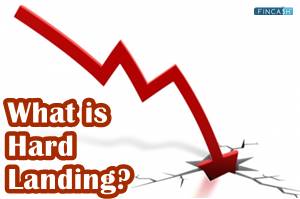Hard-to-Borrow List
What is Hard-to-Borrow List?
Just like the regular goods and services, shares and other such financial instruments are not available in abundance. Some Underlying securities or shares are limited. Now, the brokerage company offers securities to investors as short-selling. If these securities have a limited supply and are not available in the inventory, then the brokerage company can create the hard-to-borrow list. This list mentions the securities that the company will not be able to provide to the investors because of the extremely limited supply.

For instance, if a brokerage company has listed the shares of a particular company on the hard-to-borrow list, then that means they won’t be able to offer these shares on short-selling to the investors. Basically, it implies that the brokerage firm has a limited stock of the particular shares and they can’t use it for short-selling. Note that the hard-to-borrow list meaning is updated every single day.
Is Hard-to Borrow List Important?
It is extremely important for the brokerage company to create the hard-to-borrow list in advance so that the client can plan their future investment strategies accordingly. In other words, the hard-to-borrow list is the stock record that features the list of the shares, securities, and investment commodities that can’t be sold for the short-sale transactions. This list helps the clients get a clear picture of the stocks they cannot purchase for short-sale transactions.
The broker offers these shares for short-sale as long as they have enough stocks of the company available. As soon as they run out of these stocks, they mention the unavailable or limited stocks on the hard-to-borrow list. This notifies the clients that they can’t sell the stock short. Their requests for short-sale transactions will not be approved by the brokerage company.
That being said, the shares of a specific company can appear on the hard-to-borrow list for multiple reasons. The most common one is the limited supply of that stock. The brokerage firm can also list the shares on the hard-to-borrow list if the stocks are extremely volatile.
Talk to our investment specialist
How does the Short-sale Transaction Work?
In short-selling, the client sells the shares they do not own. They borrow these shares from a seller and expect the decline in the Market price of the stock to earn profit from it. Now, brokerage companies can use different ways to offer a large number of shares for short selling. However, they still don’t have an infinite number of shares for short-sale transactions.
This means the investors plan on making the profits from a declining market. If the investor assumes the price of the stock will decline in the future, they can short-sale these stocks. If the price of the stock falls as expected, they can purchase it again. However, if the market value of the stock increases, the trader will lose the money. Before selling the shares, the brokerage company must locate or borrow these shares. The short-sale transaction will be valid only when the brokerage company is able to buy and deliver the shares to the client.
All efforts have been made to ensure the information provided here is accurate. However, no guarantees are made regarding correctness of data. Please verify with scheme information document before making any investment.












